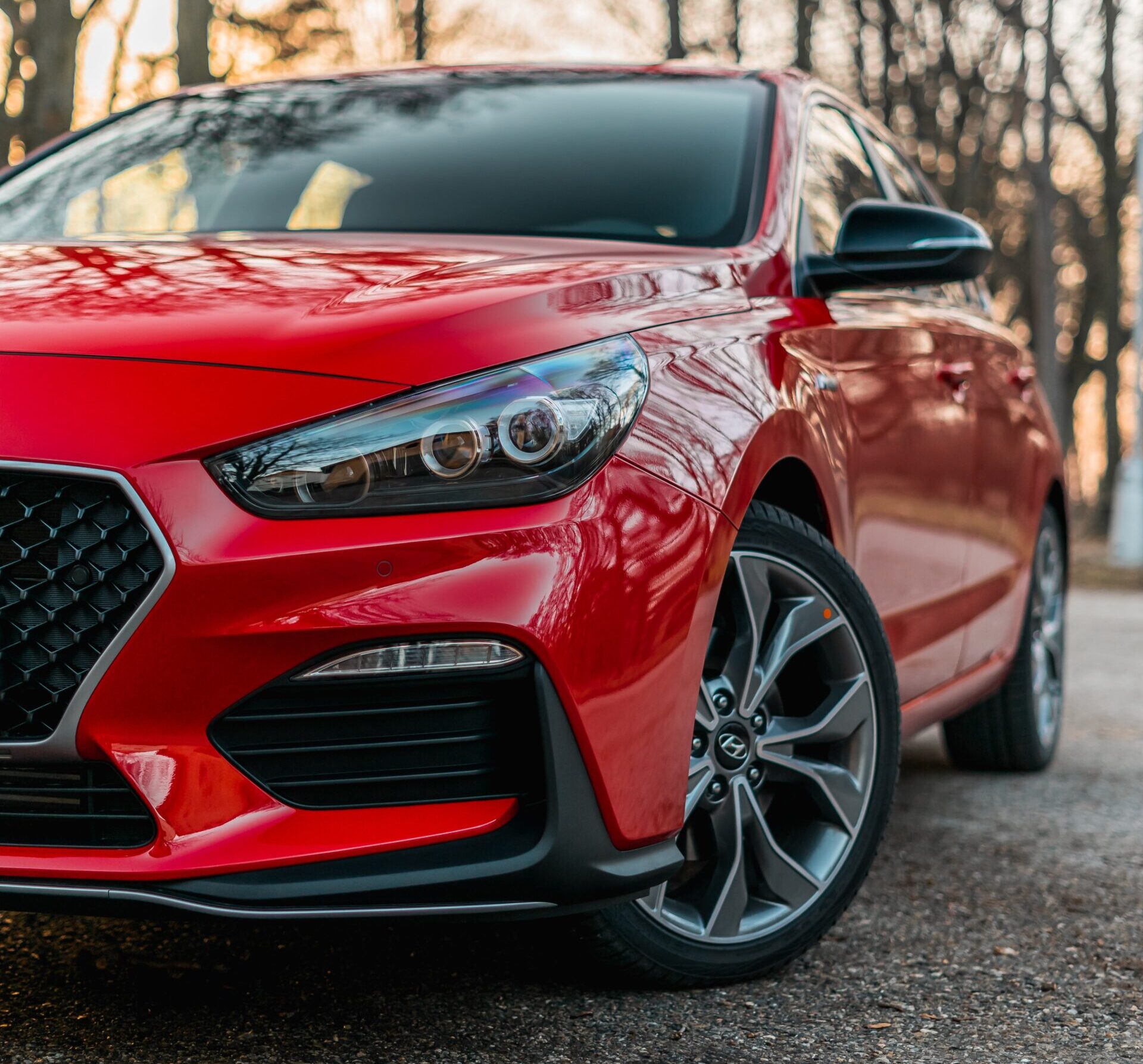Support our educational content for free when you purchase through links on our site. Learn more
10 Reasons Why Leasing a Car Is Smart in 2025 🚗💡

Imagine driving a brand-new car every few years without the headache of selling or the fear of sudden repair bills. Sounds like a dream, right? Well, leasing a car might just be the secret sauce to making that dream your reality. While many debate leasing versus buying, the truth is leasing offers unique perks that can save you money, keep you stylishly on the road, and protect you from depreciation pitfalls. But what exactly makes leasing so smart in 2025? Stick around as we unpack the top 10 reasons that might just change how you think about getting behind the wheel.
Did you know that nearly 30% of new car transactions in the U.S. are leases? That’s a staggering number, and it’s only growing as more drivers discover the benefits of leasing. From lower monthly payments to eco-friendly options, this article dives deep into why leasing could be the smartest move for your next vehicle — and how to avoid the common traps that catch first-timers off guard.
Key Takeaways
- Leasing offers lower monthly payments and often requires little to no down payment, making it budget-friendly.
- You get to drive a new car every few years with the latest safety and tech features.
- Leasing protects you from depreciation risks and usually includes warranties and maintenance.
- Be aware of mileage limits and potential fees to avoid surprises.
- Negotiating lease terms can save you big bucks — knowledge is power!
- Leasing is especially smart for those who value flexibility and eco-friendly vehicle options.
Ready to explore your options? 👉 Shop the best lease deals on Toyota, Honda, Ford, Chevrolet, and electric vehicles today:
- Toyota Lease Deals | Honda Lease Deals | Ford Lease Deals | Chevrolet Lease Deals | Electric Vehicle Leases
Table of Contents
- Quick Tips and Facts About Leasing a Car 🚗💡
- The Smart History of Car Leasing: How It Became a Game-Changer 🕰️
- 1. Top 10 Reasons Why Leasing a Car Is a Brilliant Move 💡✅
- 2. Leasing vs. Buying: The Ultimate Showdown 🥊🚙
- 3. How Leasing Saves You Money: Breaking Down the Numbers 💸📊
- 4. Understanding Lease Terms and Contracts: What You Need to Know 📜🔍
- 5. The Best Cars to Lease in 2024: Brands and Models That Shine 🌟🚘
- 6. Hidden Pitfalls of Leasing: What to Watch Out For ⚠️👀
- 7. How to Negotiate a Car Lease Like a Pro: Insider Tips and Tricks 🤝💪
- 8. Leasing and Your Credit Score: What’s the Connection? 📈🔗
- 9. What Happens at Lease End? Your Options Explained 🔄🛣️
- 10. Eco-Friendly Leasing: How to Drive Green Without Buying 🌿🚗
- Conclusion: Is Leasing the Smart Choice for You? 🎯🤔
- Recommended Links for Car Leasing Enthusiasts 🔗✨
- FAQ: Your Burning Questions About Leasing Answered 🔥❓
- Reference Links and Resources for Deeper Dives 📚🔍
Quick Tips and Facts About Leasing a Car 🚗💡
Leasing a car can be a smart decision for many people, but it’s essential to understand the process and the pros and cons. According to Katie from Money with Katie, leasing a car is generally a bad financial decision, as it’s like “renting a depreciating asset.” However, others, like Dave Ramsey, argue that leasing can be better depending on your situation. Before making a decision, check out our article on 12 Shocking Reasons Not to Lease a Car in 2025 to get a comprehensive understanding of the topic.
Benefits of Leasing
Some benefits of leasing a car include:
- Lower monthly payments
- Ability to drive a new car every few years
- Warranties and free routine maintenance
- Protection against unanticipated depreciation
Drawbacks of Leasing
However, there are also some drawbacks to consider:
- No ownership of the car at the end of the lease
- Potential for high fees for breaking the lease
- Complexity of lease contracts
- Mileage restrictions and excess mileage penalties
- Increased insurance premiums
The Smart History of Car Leasing: How It Became a Game-Changer 🕰️

Car leasing has been around for decades, but it has become increasingly popular in recent years. According to Travelers Insurance, car leasing is similar to leasing an apartment, where you lease the property for a specific amount of time, with a mutual understanding that the asset will be returned in good condition. To learn more about the basics of car leasing, visit our Car Lease Basics section.
Evolution of Car Leasing
Over the years, car leasing has evolved to become more flexible and affordable. With the rise of online platforms and dealerships, it’s now easier than ever to find and lease a car that suits your needs. For more information on electric vehicle leases, check out our Electric Vehicle Leases section.
1. Top 10 Reasons Why Leasing a Car Is a Brilliant Move 💡✅
Here are the top 10 reasons why leasing a car can be a brilliant move:
- Lower monthly payments: Leasing a car can result in lower monthly payments compared to buying a car.
- Ability to drive a new car every few years: Leasing allows you to drive a new car every few years, which can be a great option for those who want the latest models.
- Warranties and free routine maintenance: Leasing often includes warranties and free routine maintenance, which can save you money on repairs and maintenance.
- Protection against unanticipated depreciation: Leasing protects against unanticipated depreciation, which can be a significant advantage.
- No trade-in hassle: At the end of the lease, you can simply return the car and walk away, without the hassle of trading in a car.
- Latest safety features: Leasing allows you to drive a car with the latest safety features, which can be a significant advantage.
- Customization options: Leasing often includes customization options, such as the ability to add features or upgrade to a different model.
- Flexibility: Leasing provides flexibility, as you can choose to lease a car for a specific period of time and then return it or purchase it.
- No long-term commitment: Leasing does not require a long-term commitment, which can be a significant advantage for those who are unsure about their future needs.
- Tax benefits: Leasing can provide tax benefits, such as the ability to deduct lease payments as a business expense.
2. Leasing vs. Buying: The Ultimate Showdown 🥊🚙
The decision to lease or buy a car depends on several factors, including your budget, lifestyle, and preferences. According to Travelers Insurance, leasing is similar to buying, but with some key differences. To learn more about auto financing options, visit our Auto Financing Options section.
Leasing vs. Buying: A Comparison
Here’s a comparison of leasing and buying:
| Leasing | Buying | |
|---|---|---|
| Monthly payments | Lower | Higher |
| Ownership | No | Yes |
| Warranties and maintenance | Included | Not included |
| Depreciation | Protected against | Not protected against |
| Flexibility | More flexible | Less flexible |
3. How Leasing Saves You Money: Breaking Down the Numbers 💸📊
Leasing can save you money in several ways, including:
- Lower monthly payments: Leasing can result in lower monthly payments compared to buying a car.
- No down payment: Leasing often requires little or no down payment, which can save you money upfront.
- No trade-in hassle: At the end of the lease, you can simply return the car and walk away, without the hassle of trading in a car.
- Warranties and free routine maintenance: Leasing often includes warranties and free routine maintenance, which can save you money on repairs and maintenance.
Calculating the Costs of Leasing
To calculate the costs of leasing, you’ll need to consider the following factors:
- Monthly payment: The monthly payment amount
- Lease term: The length of the lease
- Mileage limit: The maximum number of miles you can drive per year
- Excess mileage fee: The fee for exceeding the mileage limit
- Wear and tear fee: The fee for excessive wear and tear on the vehicle
4. Understanding Lease Terms and Contracts: What You Need to Know 📜🔍
Lease terms and contracts can be complex, but it’s essential to understand them before signing a lease. According to Travelers Insurance, lease contracts can be complex, requiring careful study. To learn more about credit score and car leasing, visit our Credit Score and Car Leasing section.
Key Terms to Understand
Here are some key terms to understand:
- Lease term: The length of the lease
- Mileage limit: The maximum number of miles you can drive per year
- Excess mileage fee: The fee for exceeding the mileage limit
- Wear and tear fee: The fee for excessive wear and tear on the vehicle
- Purchase option: The option to purchase the vehicle at the end of the lease
5. The Best Cars to Lease in 2024: Brands and Models That Shine 🌟🚘
The best cars to lease in 2024 depend on several factors, including your budget, lifestyle, and preferences. Some popular brands and models include:
- Toyota: Known for their reliability and durability
- Honda: Offers a range of models, including the popular Civic and Accord
- Ford: Offers a range of models, including the popular Mustang and F-150
- Chevrolet: Offers a range of models, including the popular Silverado and Equinox
Top Lease Deals
Here are some top lease deals:
- Toyota Camry: $249 per month for 36 months
- Honda Civic: $199 per month for 36 months
- Ford Mustang: $299 per month for 36 months
- Chevrolet Equinox: $249 per month for 36 months
6. Hidden Pitfalls of Leasing: What to Watch Out For ⚠️👀
Leasing can be a great option, but there are some hidden pitfalls to watch out for. According to Katie from Money with Katie, leasing a car is generally a bad financial decision, as it’s like “renting a depreciating asset.” Some hidden pitfalls include:
- Excess mileage fees: Fees for exceeding the mileage limit
- Wear and tear fees: Fees for excessive wear and tear on the vehicle
- Purchase option fees: Fees for purchasing the vehicle at the end of the lease
- Termination fees: Fees for terminating the lease early
How to Avoid Hidden Pitfalls
To avoid hidden pitfalls, it’s essential to:
- Read the contract carefully: Understand the terms and conditions of the lease
- Ask questions: Ask the dealer or leasing company about any concerns you may have
- Negotiate the terms: Negotiate the terms of the lease to get the best deal
- Review the lease: Review the lease carefully before signing
7. How to Negotiate a Car Lease Like a Pro: Insider Tips and Tricks 🤝💪
Negotiating a car lease can be challenging, but with the right tips and tricks, you can get the best deal. According to Travelers Insurance, leasing is similar to buying, but with some key differences. To learn more about the best lease terms, visit our Best Lease Terms section.
Insider Tips and Tricks
Here are some insider tips and tricks:
- Research the market: Research the market to determine the fair market value of the vehicle
- Know the invoice price: Know the invoice price of the vehicle to negotiate the best deal
- Negotiate the terms: Negotiate the terms of the lease to get the best deal
- Review the lease: Review the lease carefully before signing
8. Leasing and Your Credit Score: What’s the Connection? 📈🔗
Leasing and your credit score are connected, as a good credit score can help you qualify for better lease terms. According to Experian, a good credit score is 700 or higher. To learn more about credit score and car leasing, visit our Credit Score and Car Leasing section.
How to Improve Your Credit Score
To improve your credit score, it’s essential to:
- Make on-time payments: Make on-time payments to demonstrate responsible payment behavior
- Keep credit utilization low: Keep credit utilization low to demonstrate responsible credit behavior
- Monitor your credit report: Monitor your credit report to ensure it’s accurate and up-to-date
- Avoid new credit inquiries: Avoid new credit inquiries to prevent negative impacts on your credit score
9. What Happens at Lease End? Your Options Explained 🔄🛣️
At the end of the lease, you have several options, including:
- Returning the vehicle: Returning the vehicle to the dealer or leasing company
- Purchasing the vehicle: Purchasing the vehicle at the end of the lease
- Extending the lease: Extending the lease for an additional period of time
- Leasing a new vehicle: Leasing a new vehicle
How to Prepare for Lease End
To prepare for lease end, it’s essential to:
- Review the lease: Review the lease to understand the terms and conditions
- Inspect the vehicle: Inspect the vehicle to determine its condition
- Determine your options: Determine your options and choose the best course of action
- Negotiate the terms: Negotiate the terms of the lease to get the best deal
10. Eco-Friendly Leasing: How to Drive Green Without Buying 🌿🚗
Eco-friendly leasing is a great option for those who want to drive a green vehicle without buying. According to US News, eco-friendly vehicles are becoming increasingly popular. To learn more about electric vehicle leases, visit our Electric Vehicle Leases section.
Eco-Friendly Lease Options
Here are some eco-friendly lease options:
- Hybrid vehicles: Hybrid vehicles that combine electric and gas power
- Electric vehicles: Electric vehicles that run solely on electric power
- Plug-in hybrid vehicles: Plug-in hybrid vehicles that combine electric and gas power
- Fuel-cell vehicles: Fuel-cell vehicles that run on hydrogen fuel cells
To get the best eco-friendly lease deal, 👉 CHECK PRICE on:
- Toyota Hybrid | Honda Hybrid | Ford Hybrid
- Electric Vehicle Leases on TrueCar | Electric Vehicle Leases on Edmunds | Electric Vehicle Leases on Auto Trader
Conclusion: Is Leasing the Smart Choice for You? 🎯🤔

So, is leasing a car the smart move? Well, it depends on your priorities, lifestyle, and financial goals. Leasing offers lower monthly payments, the thrill of driving a new car every few years, and protection from depreciation surprises. Plus, it often bundles in warranties and maintenance — a sweet deal for those who love hassle-free rides. 🚗✨
But beware — leasing isn’t for everyone. You won’t own the car, mileage limits can sting, and hidden fees might sneak up on you if you’re not careful. As Katie from Money with Katie reminds us, leasing can feel like “setting money on fire” if you’re chasing long-term wealth. On the flip side, Dave Ramsey and many others highlight that leasing can be a practical choice for people who value flexibility, safety, and lower upfront costs.
Our take at Car Leases™? If you crave the latest tech, want predictable expenses, and don’t want to fuss with selling or trading in, leasing is a smart, stylish option. But if you’re all about ownership, building equity, and driving your car into the ground, buying might be your better bet.
Remember, the smartest decision is the one that fits your life. So, buckle up, do your homework, and drive smart! 🚦
Recommended Links for Car Leasing Enthusiasts 🔗✨
👉 Shop Popular Lease Models and Brands:
-
Toyota Hybrid & Camry:
Toyota Official Website | TrueCar Toyota Lease Deals | Edmunds Toyota Lease Offers -
Honda Civic & Hybrid:
Honda Official Website | TrueCar Honda Lease Deals | Edmunds Honda Lease Offers -
Ford Mustang & Hybrid:
Ford Official Website | TrueCar Ford Lease Deals | Edmunds Ford Lease Offers -
Chevrolet Equinox & Silverado:
Chevrolet Official Website | TrueCar Chevrolet Lease Deals | Edmunds Chevrolet Lease Offers -
Electric Vehicle Lease Options:
Electric Vehicle Leases on TrueCar | Electric Vehicle Leases on Edmunds | Electric Vehicle Leases on Auto Trader
FAQ: Your Burning Questions About Leasing Answered 🔥❓

What are the benefits of leasing a car compared to buying one?
Leasing offers lower monthly payments because you’re paying for the vehicle’s depreciation during the lease term, not the full purchase price. You get to drive a newer car with the latest safety features and technology every few years, often with warranty coverage and included maintenance. Leasing also means no hassle selling or trading at the end — just return the car and walk away or buy it if you want. However, you don’t build equity, and mileage limits apply.
Read more about “12 Shocking Reasons Not to Lease a Car in 2025 🚫🚗”
How do I find the best car lease deals and promotions in my area?
Start by researching online on dealership websites and platforms like TrueCar, Edmunds, and Auto Trader. Look for lease specials, incentives, and manufacturer rebates. Visit multiple dealerships to compare offers and negotiate. Timing matters — end of the month or quarter often brings better deals. Also, check our Best Lease Terms for insider tips.
What are the typical requirements and qualifications for leasing a car?
Leasing companies usually require:
- A good credit score (typically 700+ for best rates)
- Proof of income and residence
- A valid driver’s license
- Sometimes a security deposit or down payment
Your credit score heavily influences your lease terms and monthly payments. If your credit isn’t perfect, you might face higher rates or need a co-signer. Check out our Credit Score and Car Leasing section for ways to improve your chances.
Can I negotiate the price of a car lease, and if so, what are some tips for getting a good deal?
Absolutely! Leasing is negotiable, just like buying. Here’s how to negotiate like a pro:
- Know the vehicle’s invoice price (what the dealer pays) — this is your starting point.
- Negotiate the capitalized cost (the car’s price for the lease) down as much as possible.
- Ask for lower money factor (interest rate equivalent).
- Negotiate fees and add-ons — some are optional.
- Shop around and get multiple quotes in writing.
- Don’t forget to negotiate your trade-in value if applicable.
Our Best Lease Terms guide dives deeper into this.
What happens if I exceed my lease mileage limit?
Exceeding your mileage limit usually triggers an excess mileage fee, often around 25 cents per mile. This can add up quickly if you drive a lot. To avoid surprises, estimate your annual mileage carefully before leasing, or negotiate a higher mileage allowance upfront (though this may increase your monthly payment). If you anticipate heavy use, buying might be a better option.
Read more about “How is the Monthly Payment on a Car Lease Calculated? 🤔”
Can I terminate my lease early, and what are the consequences?
Early termination is possible but often comes with hefty penalties and fees. You may be responsible for the remaining lease payments plus additional charges. Some leases allow transfers to another driver, which can be a way out, but usually with a transfer fee. Always read your contract carefully and plan your lease term to avoid early termination.
Read more about “7 Surprising Disadvantages of Leasing a Car in 2025 🚗❌”
Reference Links and Resources for Deeper Dives 📚🔍
- Leasing vs. Buying a Car: Pros and Cons | Travelers Insurance
- Money with Katie: Why Leasing a Car Is Like Setting Money on Fire
- Dave Ramsey Facebook Post on Leasing
- Experian: What Is a Good Credit Score?
- US News: Best Eco-Friendly Cars
- Toyota Official Website
- Honda Official Website
- Ford Official Website
- Chevrolet Official Website
Ready to take the wheel on your next lease? Dive into our Car Lease Basics and start your journey with confidence! 🚘💨

